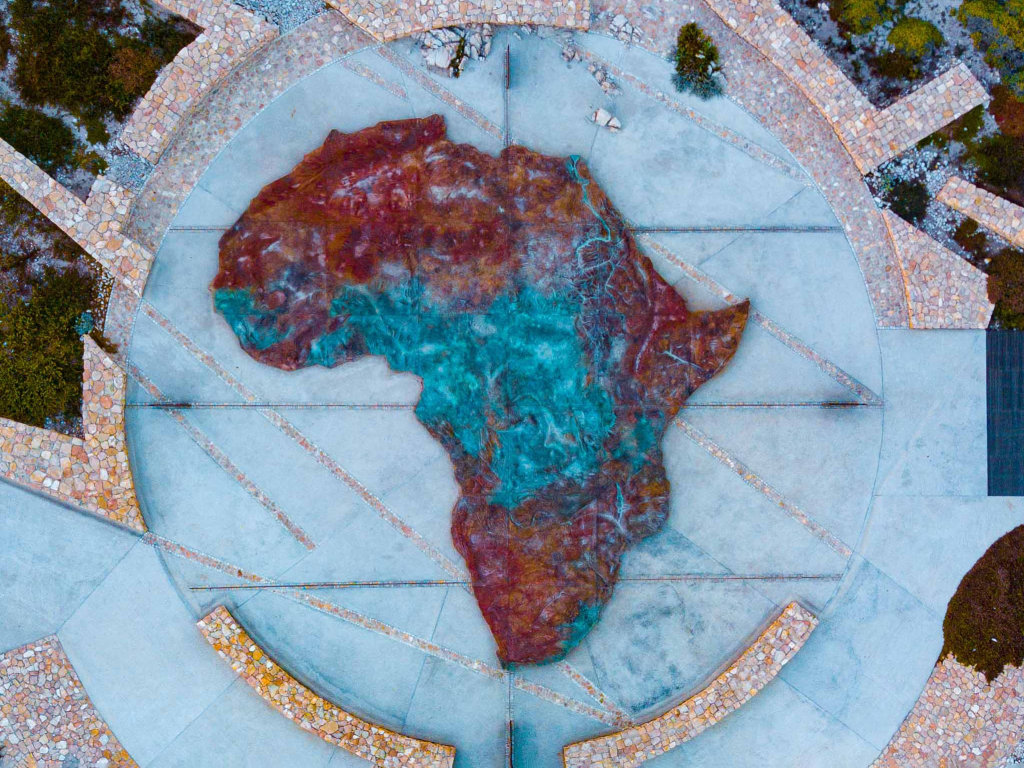This year’s Africa Day on May 25 took place against a backdrop marked by post-COVID challenges and the consequences of the war in Ukraine. Amidst unprecedented changes to the global economy, international trade, energy, and food security, the African continent has found itself at the center of a new geopolitical order.
To commemorate Africa Day 2022, the Atlantic Council’s Africa Center hosted a panel of experts including Mvemba Dizolele, Africa program director at the Center for Strategic International Studies; Ebenezer Obadare, Douglas Dillon senior fellow for Africa Studies at the Council on Foreign Relations; Joseph Sany, vice president of the Africa Center at the US Institute of Peace; and Rama Yade, senior director of the Atlantic Council’s Africa Center. In the conversation moderated by Julian Pecquet, Jeune Afrique‘s Washington and United Nations (UN) correspondent, these experts on African affairs from think tanks across Washington, DC, discussed Africa’s burgeoning role in the international system.
Here are highlights from the event, covering everything from Africa’s relationship with Western countries to the trajectory of democracy across the continent.
Watch the full event
African agency and geopolitics
- In the context of heightening great-power competition and Africa’s mixed voting on the UN resolution to condemn Russia’s invasion of Ukraine, Sany noted that the entire geopolitical status of Africa cannot be reduced to a single UN voting session. He affirmed that Africanists are happy with the continent’s growing agency in the world but stressed that this agency comes with the responsibility of upholding “core principles of the collective security.”
- Obadare highlighted the readiness of African leaders to cooperate with international actors to promote and defend shared principles. He recalled seeing young Nigerians in Abuja looking to enlist in order to “help Ukraine defend their sovereignty” because they believed there were “fundamental, universal issues at stake.”
- Dizolele recommended that the West “change its mindset” when approaching Africa and engage African states as sovereign countries. “The world is not unipolar; the world is multipolar and still reconfiguring itself,” he said. “You go to Djibouti you find the Chinese, you find the Americans, you find the French, you find the Turks, and you find the Gulf Arab States. So Africans have choices and as they make decisions they take into consideration all those options in front of them.”
From crisis to opportunity
- Yade identified the various crises facing Africa and the global economy as a result of the war in Ukraine. She went on to explain how this unique moment in history presents an opportunity to reform international systems and institutions to more effectively address these pressing issues including climate change, development, energy, and security.
- “We are facing a confluence of transnational crises, and therefore this is an opportunity to rethink our global responses,” Sany added. “It is a time [during which] Africa needs more global economic engagement and [the United States] and the West [need] more partners. Considering that this is a moment of opportunity, it is also a moment to redesign our multilateral system.”
The future of African leadership and governance
- Several African governments have struggled to resolve crises due to ineffective leadership and insufficient structural capacities, said Dizolele. In responding to the current food crisis affecting the continent, he questioned why a Nigerian or Congolese citizen would be reliant on wheat when maize is a more locally abundant food source. “You have to have a ministry of agriculture and a presidency that is invested in this kind of thinking,” Dizolele said, adding that he believes this structural leadership is missing.
- There’s a need to be creative in thinking about leadership when responding to crises in African states, Sany explained. “The consciousness that creates the problem is not the same consciousness that will resolve it,” he said. He later added that it is difficult to point to a leader “because we keep looking at the government. We have not talked enough about the private sector… This is a moment of opportunity to bring in new stakeholders; the private sector, civil society, youth movements.”
Democracy in question
- “This word democracy, as a concept and as practice, is in a deep crisis,” said Yade. While there is a “strong willingness of African civil societies to promote democratic values,” she explained, there is also a growing resistance to Western democracy among younger generations.
- Obadare concluded his remarks by saying, “the answer to democratic erosion is democratic deepening. Liberal values are not Western values [and] they are not African values; they are grounded in who we are as human beings.” He called on African intellectuals to take the lead as champions of these values.
Narayan Felix is a young global professional at the Atlantic Council’s Africa Center.
